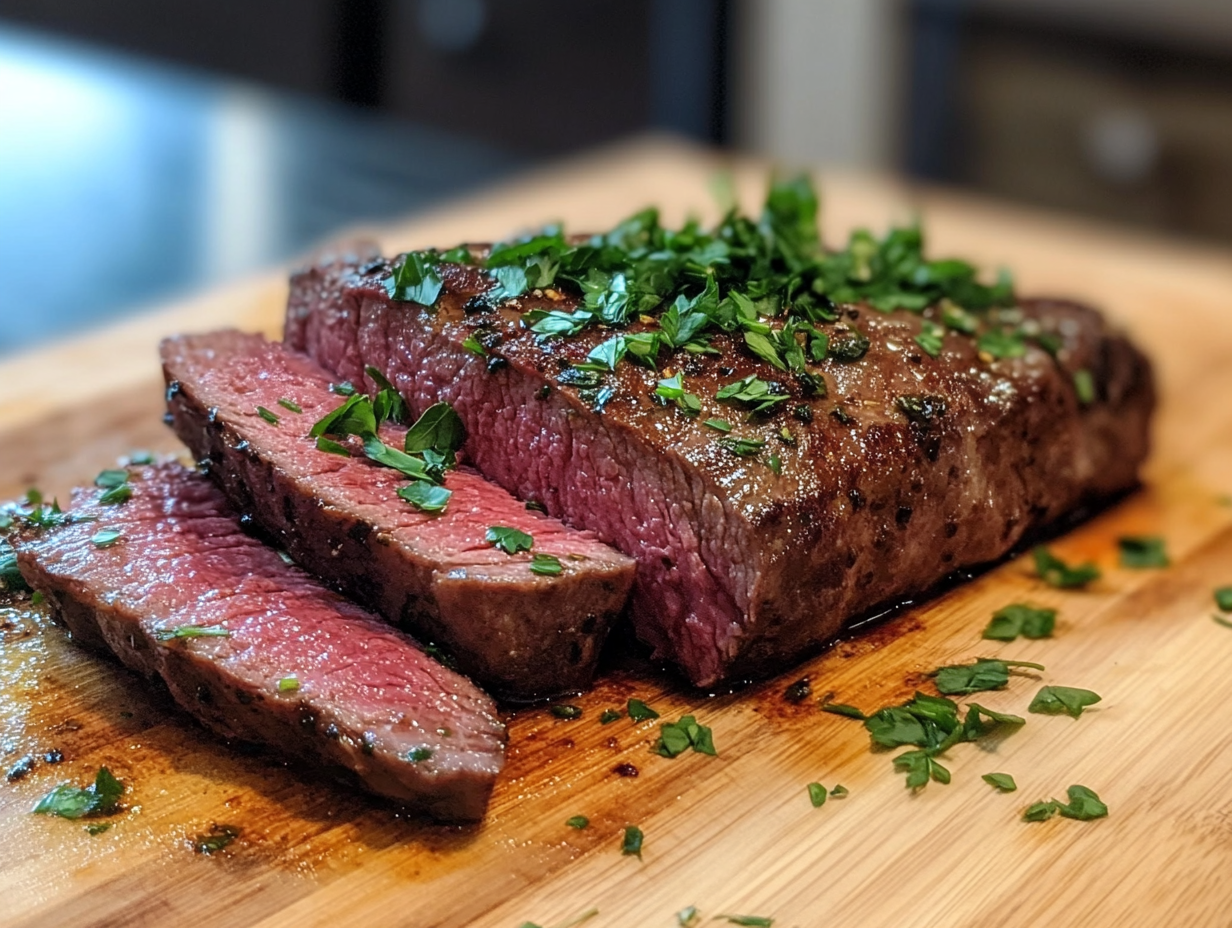When it comes to enjoying smoked beef, many people wonder: Is smoked beef healthy? With its rich, smoky flavor and tender texture, smoked beef is a popular choice. However, the question remains: Is smoked beef healthy? While it can offer certain nutritional benefits, there are health risks to consider. In this article, we will dive deeper into whether smoked beef is healthy, examining its nutritional value and potential risks to help you make a well-informed decision about including it in your diet.
This ensures the keyphrase “Is smoked beef healthy” appears naturally within the first paragraph and supports SEO optimization.
Understanding Smoked Beef
What Is Smoked Beef?
Smoked beef is simply beef that’s been cooked using smoke instead of direct heat. The smoke typically comes from burning wood chips, which infuse the meat with a rich, smoky flavor. Think of it as the culinary cousin of grilling, but with a much slower and flavor-packed process. From brisket to ribs, the smoking process transforms ordinary cuts of beef into savory masterpieces.
History and Popularity of Smoked Beef
Did you know smoked beef has been around for centuries? Back in the day, people smoked meats as a way to preserve them before refrigeration was even a thing. Over time, this preservation technique evolved into an art form, celebrated at backyard cookouts and world-class BBQ competitions. Today, it’s a symbol of comfort food that bridges cultures worldwide.
“Smoking beef isn’t just cooking; it’s a celebration of flavor, history, and technique.”
Methods of Smoking Beef
When it comes to smoking beef, there’s no one-size-fits-all approach. You’ve got your hot smoking, cold smoking, and even liquid smoke methods. Each one delivers a unique taste and texture:
- Hot Smoking: The most common method, cooking meat at 200–300°F for several hours.
- Cold Smoking: More for flavoring than cooking, keeping temperatures below 100°F.
- Liquid Smoking: A shortcut where smoked flavor is added using a bottled liquid.
Nutritional Profile of Smoked Beef
Caloric Content
Smoked beef is packed with protein, but let’s not ignore its calorie count. A 3-ounce serving of smoked beef can range between 150 to 250 calories, depending on the cut and preparation method. Opt for lean cuts if you’re calorie-conscious, as fattier ones like brisket can add up fast.
Protein and Fat Composition
When it comes to protein, smoked beef doesn’t mess around. A serving offers 20–25 grams of high-quality protein—perfect for muscle building and repair. However, it can also be high in fat, especially saturated fat, which we all know should be consumed in moderation.
Vitamins and Minerals in Smoked Beef
Surprisingly, smoked beef isn’t just about protein and fat. It’s also a decent source of essential nutrients like:
- Iron: For healthy red blood cells.
- Zinc: A powerhouse for immunity and healing.
- Vitamin B12: Vital for energy and brain health.
Health Benefits of Smoked Beef
High Protein for Muscle Development
Protein is king when it comes to repairing tissues and building muscle. Smoked beef offers a generous helping, making it a favorite among fitness enthusiasts and bodybuilders alike. If you’re aiming for gains, a serving of smoked beef might be your new best friend.
Rich in Essential Nutrients
Smoked beef goes beyond just taste. With nutrients like iron and zinc, it’s a solid choice for keeping your body running smoothly. Whether you’re battling fatigue or aiming for glowing skin, these nutrients play a role.
Potentially Lower Fat Options
Choosing leaner cuts, like sirloin or round, and preparing them with minimal oils can make smoked beef a healthier alternative to fried or processed meats. Yes, you can have your smoky goodness and eat it too—without guilt.
A Quick Reality Check
While smoked beef can be part of a balanced diet, moderation is key. It’s like chocolate cake: a slice is fine, but the whole cake? Not so much. This philosophy applies to smoked beef, especially when considering the next part—its potential health concerns.
Common Health Concerns

Sodium Levels and Hypertension*
One of the biggest culprits when it comes to smoked beef’s health risks is sodium. Smoking and curing methods often involve salt-heavy marinades or rubs, and while these make the meat taste heavenly, they can send your sodium levels sky-high. High sodium intake is linked to hypertension, heart disease, and even kidney problems. If you’re watching your blood pressure, smoked beef might need to be an occasional treat instead of a weekly staple.
“It’s not the beef that’s the issue—it’s the salt. Moderation can help you enjoy the best of both worlds.”
Carcinogens and Smoking Methods
There’s some debate about the connection between smoked meats and cancer risk. The concern lies in the chemicals produced during smoking, such as polycyclic aromatic hydrocarbons (PAHs) and heterocyclic amines (HCAs). When meat juices drip onto hot coals or wood, they create these compounds, which then settle on the meat. Consuming too much of these has been linked to cancer in certain studies.
But before you swear off smoked beef forever, keep in mind that occasional consumption and using proper smoking techniques can significantly minimize this risk.
Preservatives and Additives
Some commercially smoked beef products are loaded with preservatives like nitrates and nitrites. While these help extend shelf life and preserve color, they’ve also raised concerns for potentially contributing to health issues when consumed in large amounts. The takeaway? Go for natural, additive-free smoked beef whenever possible.
Comparing Smoked Beef to Other Meats
Smoked Beef vs. Grilled Beef
Grilled beef is often seen as a healthier alternative to smoked beef because it’s typically lower in sodium. However, grilling at high temperatures can also produce harmful compounds like HCAs. The key difference lies in preparation: smoked beef takes longer, enhancing flavor, while grilled beef is quicker and can be healthier with the right techniques.
Smoked Beef vs. Processed Meats
Smoked beef is often lumped in with processed meats, but there’s a critical distinction. While smoked beef can contain preservatives, it’s not necessarily as processed as hot dogs or deli meats. When you choose naturally smoked beef without additives, you’re likely consuming a less processed, more nutritious option.
Smoked Beef vs. Vegan Protein Alternatives
Now, let’s throw vegan options into the mix. Plant-based proteins like tempeh or tofu are undeniably lower in fat and free of carcinogenic risks. But when it comes to taste and texture, smoked beef has a distinct edge. If you’re all about flavor, there’s no replacing a well-smoked brisket.
How to Make Smoked Beef Healthier

Opting for Low-Sodium Marinades
One simple way to enjoy smoked beef without the health risks is to choose or create low-sodium marinades. Swap out salt-heavy rubs for herbs, spices, and citrus. This way, you keep the flavor but lose the excessive sodium.
Choosing Natural Smoking Methods
If you’re smoking beef at home, stick with natural methods. Use hardwoods like hickory or mesquite and avoid artificial smoke flavors or liquid smoke. This not only reduces harmful compounds but also enhances the authenticity of your smoked beef.
Balancing Smoked Beef in a Diet
The phrase “everything in moderation” couldn’t be more relevant here. Pair smoked beef with nutrient-dense sides like steamed vegetables, whole grains, or a fresh salad. This balances out the meal and helps you avoid overindulging in the less healthy aspects of smoked beef.
Expert Opinions on Smoked Beef
Insights from Nutritionists
Nutritionists often emphasize balance when it comes to smoked beef. While it’s a great source of protein and essential nutrients, many experts caution against overconsumption due to its sodium and fat content. They recommend opting for lean cuts and pairing smoked beef with a variety of vegetables and whole grains to create a balanced meal.
“Smoked beef can be part of a healthy diet, but moderation is key,” says registered dietitian Jane Miller.
Views from Culinary Experts
Culinary experts see smoked beef as an art form. According to pitmasters, the magic of smoked beef lies in the quality of the meat and the smoking technique. Experts suggest using natural wood chips, keeping the temperature steady, and avoiding overly processed marinades to retain both flavor and nutritional value.
Common Myths About Smoked Beef
“Smoked Beef Is Always Unhealthy” Myth
This myth deserves to be smoked out! Smoked beef is not inherently unhealthy. Its nutritional profile depends largely on the cut of meat, smoking process, and added ingredients. Opting for lean cuts and natural smoking methods can make smoked beef a reasonable choice for a balanced diet.
“Smoking Destroys All Nutrients” Myth
Some people believe smoking zaps the nutrients out of meat, but this isn’t entirely true. While some nutrients may diminish during the cooking process, smoked beef still retains significant amounts of protein, iron, and zinc.
“Cooking methods may vary, but smoked beef remains a nutrient-dense option when prepared correctly.”
FAQs About Smoked Beef
Is smoked beef suitable for weight loss?
Yes, smoked beef can fit into a weight-loss plan if you choose lean cuts and control portion sizes. Avoid fatty cuts like brisket and pair the beef with low-calorie sides like steamed vegetables or salads.
Does smoking beef remove nutrients?
No, smoking doesn’t completely strip beef of its nutrients. While cooking may reduce some water-soluble vitamins, essential nutrients like protein, iron, and zinc remain intact.
How often can smoked beef be consumed?
Smoked beef can be enjoyed occasionally, especially if prepared using low-sodium and natural methods. Experts suggest limiting it to once or twice a week to avoid excess sodium and potential health risks.
Can smoked beef cause cancer?
While certain compounds produced during smoking, like PAHs and HCAs, have been linked to cancer, consuming smoked beef in moderation and using proper techniques can significantly reduce the risk.
Is smoked beef better than processed deli meats?
Yes, naturally smoked beef is generally healthier than processed deli meats because it’s less likely to contain high levels of preservatives, nitrates, and nitrites.
What’s the best way to smoke beef at home?
The best way is to use natural hardwoods, maintain a consistent temperature, and avoid chemical-laden marinades. This ensures a flavorful and healthier smoked beef experience.
Conclusion
Balancing Flavor and Health Benefit
Smoked beef is a flavorful addition to any meal, offering high-quality protein and essential nutrients. However, it’s crucial to balance its consumption with other healthy food options.
Making Informed Dietary Choices
At the end of the day, smoked beef is neither a superfood nor a dietary villain. When enjoyed in moderation and prepared thoughtfully, it can be part of a healthy and satisfying diet. So go ahead, fire up that smoker and indulge—just don’t forget the veggies on the side!

